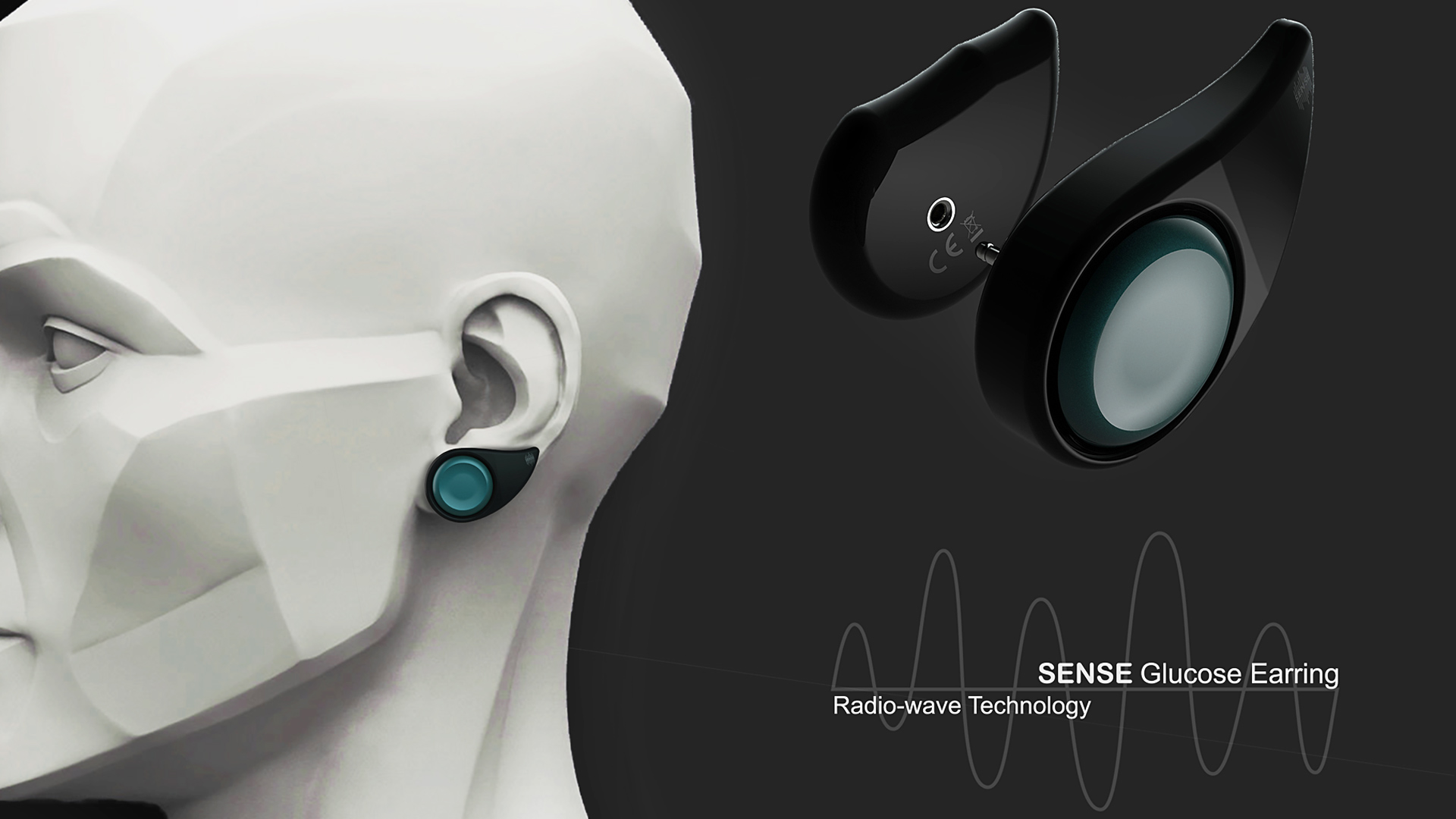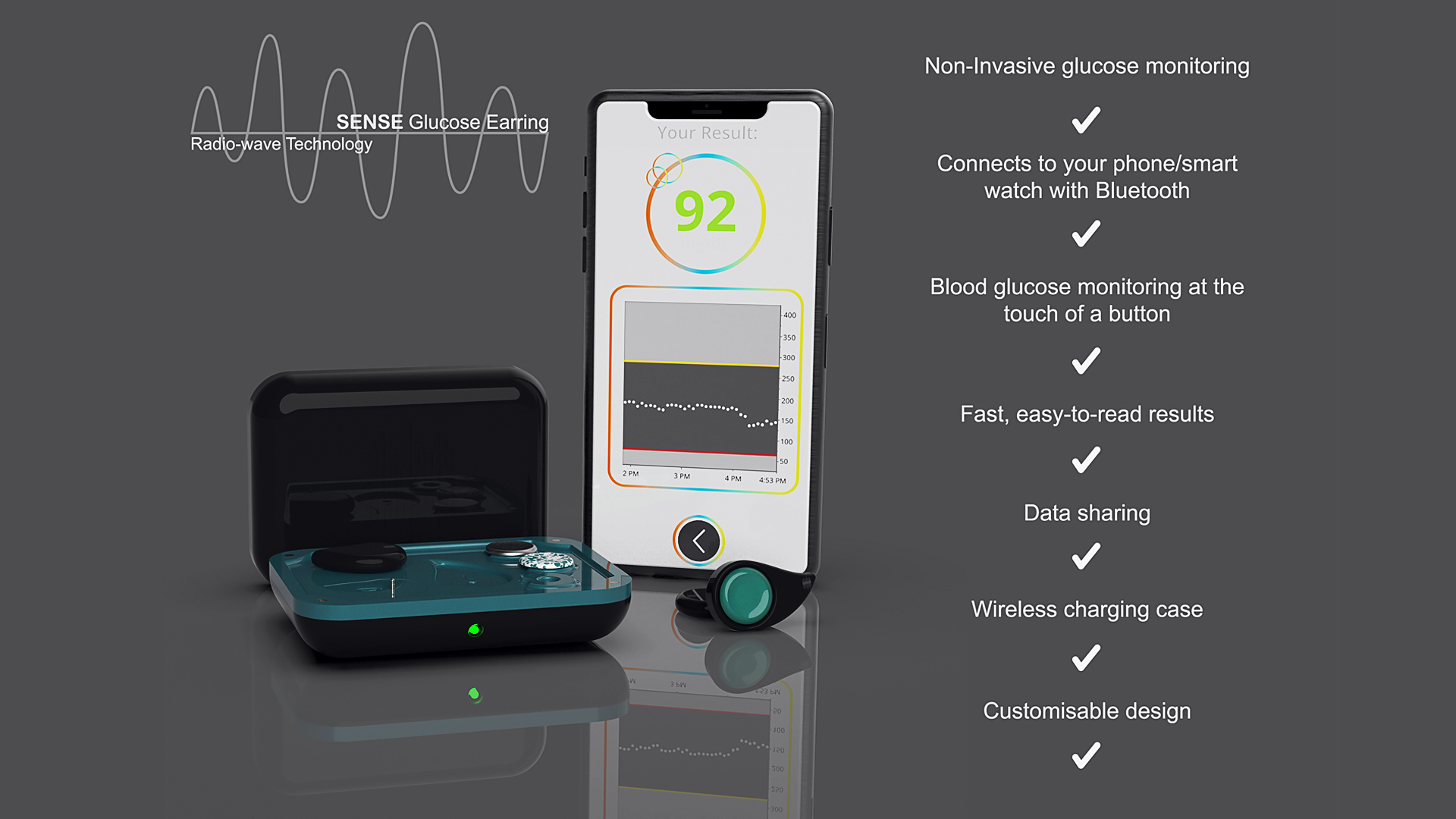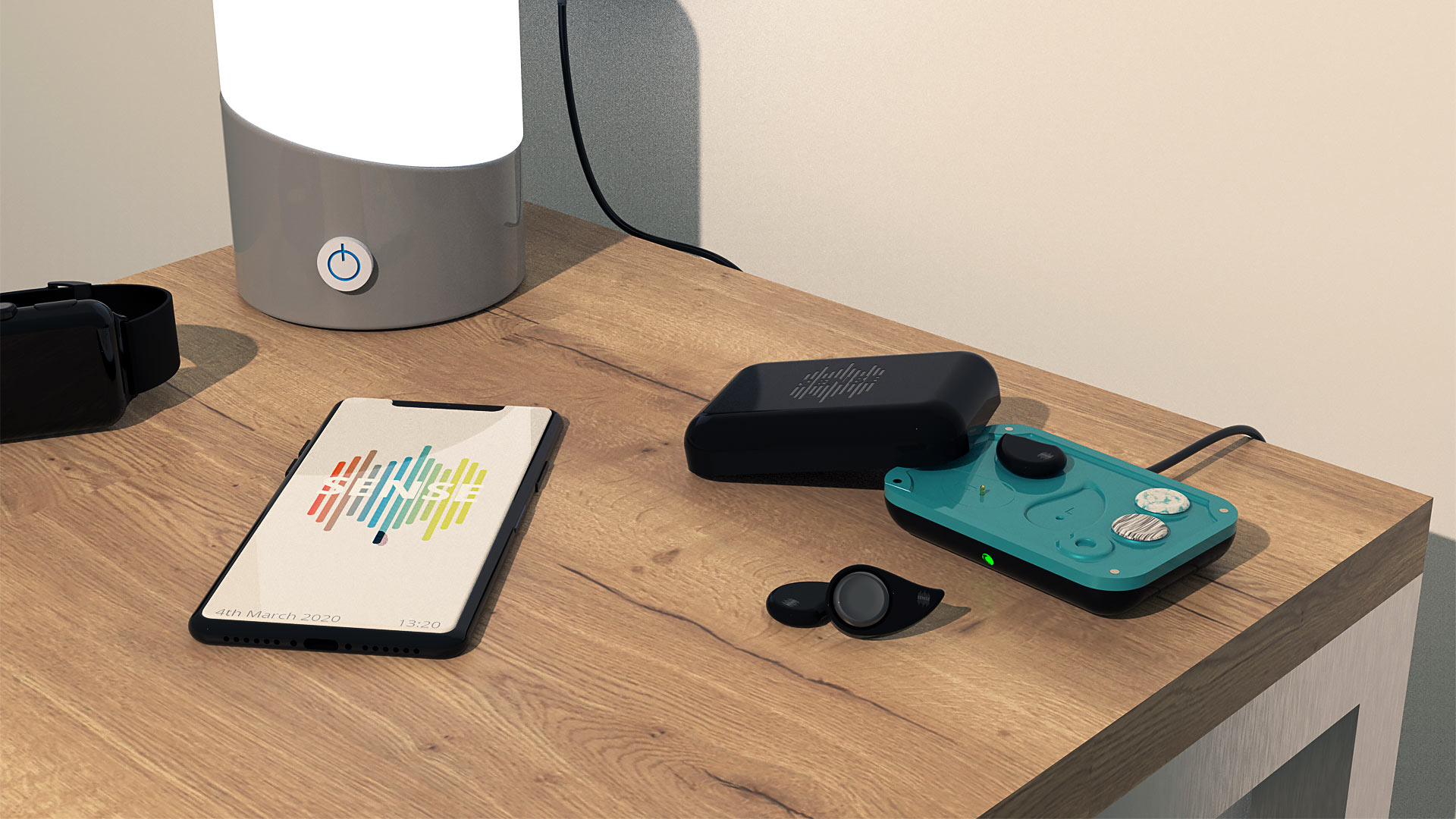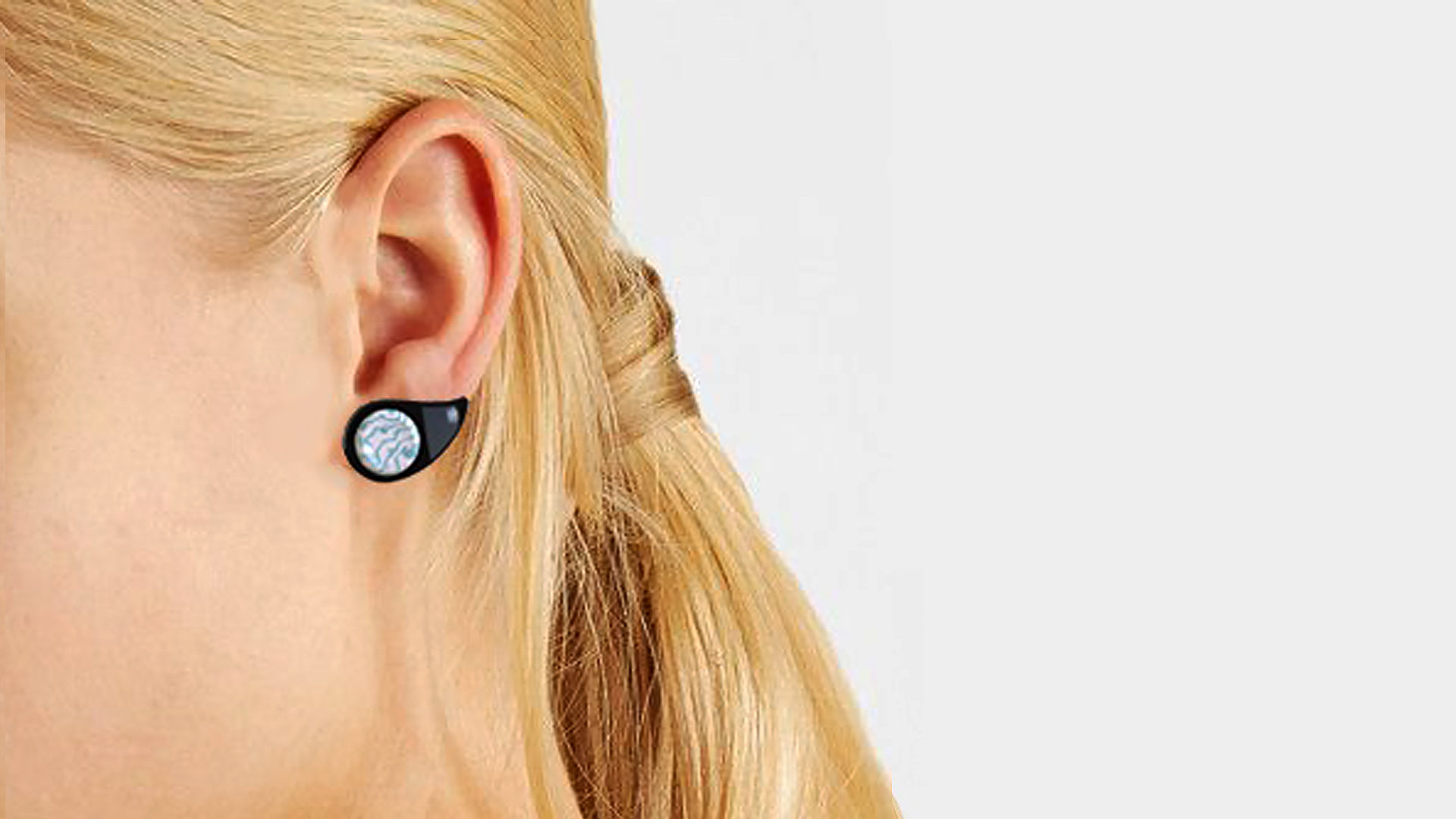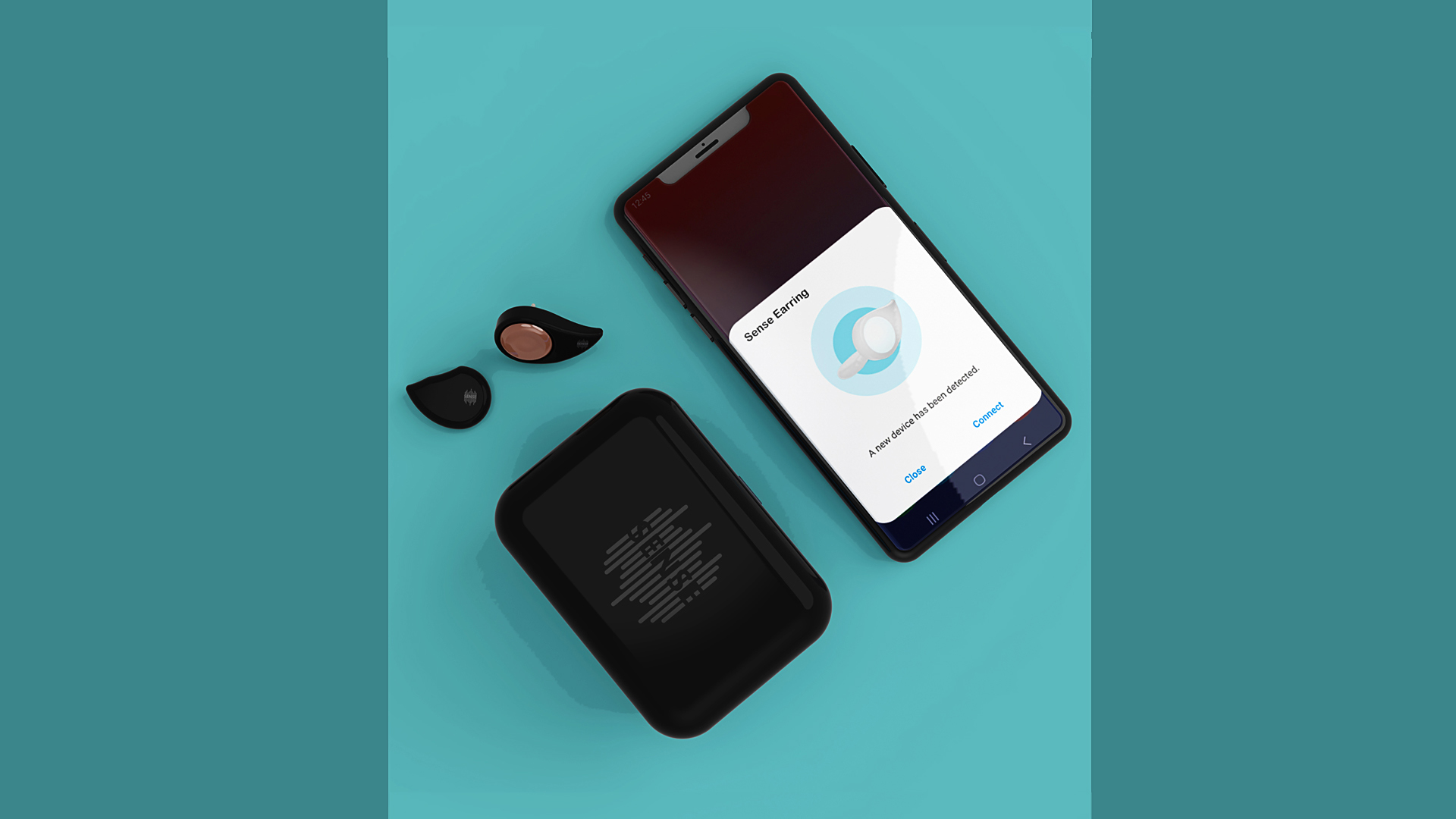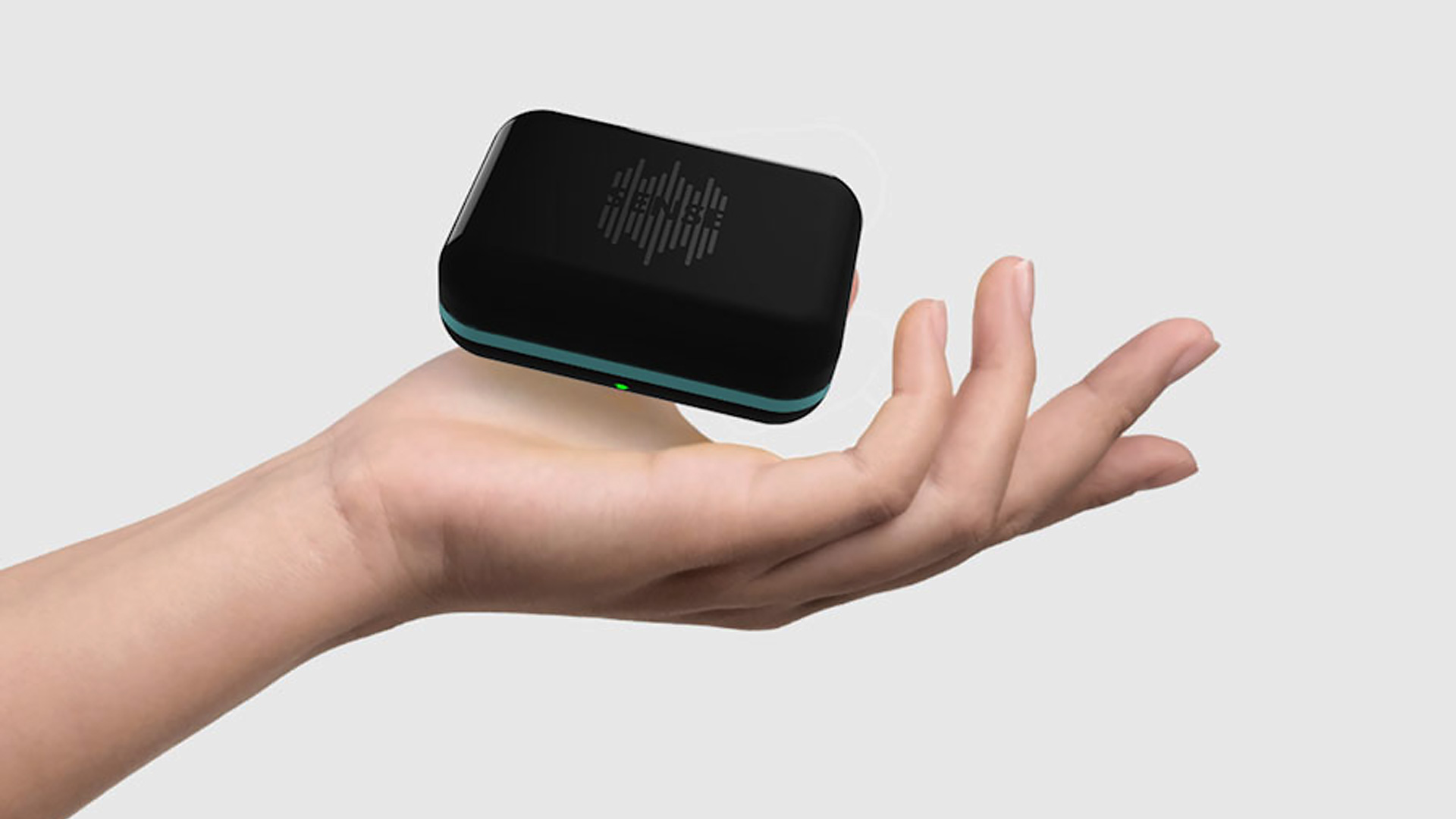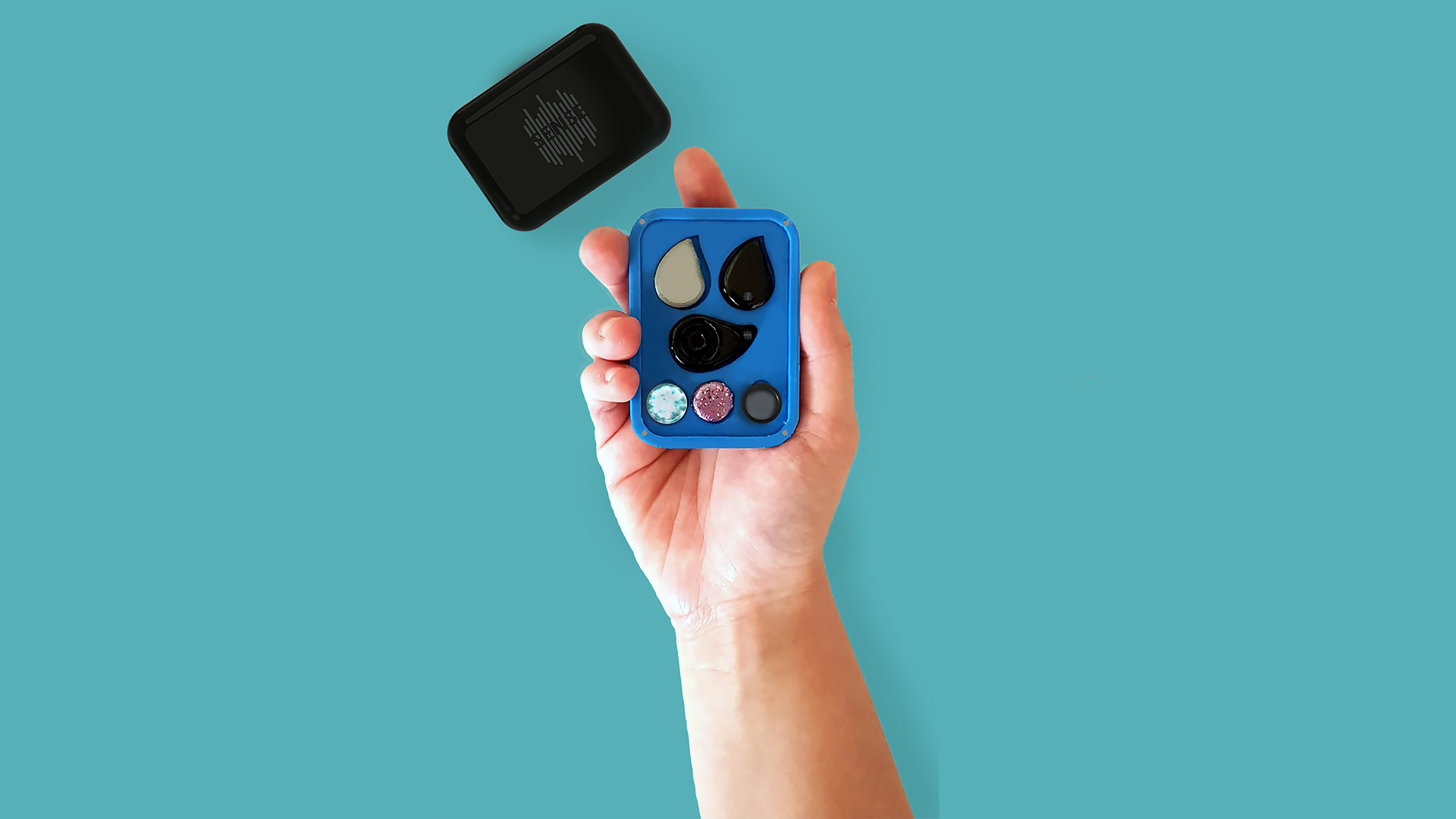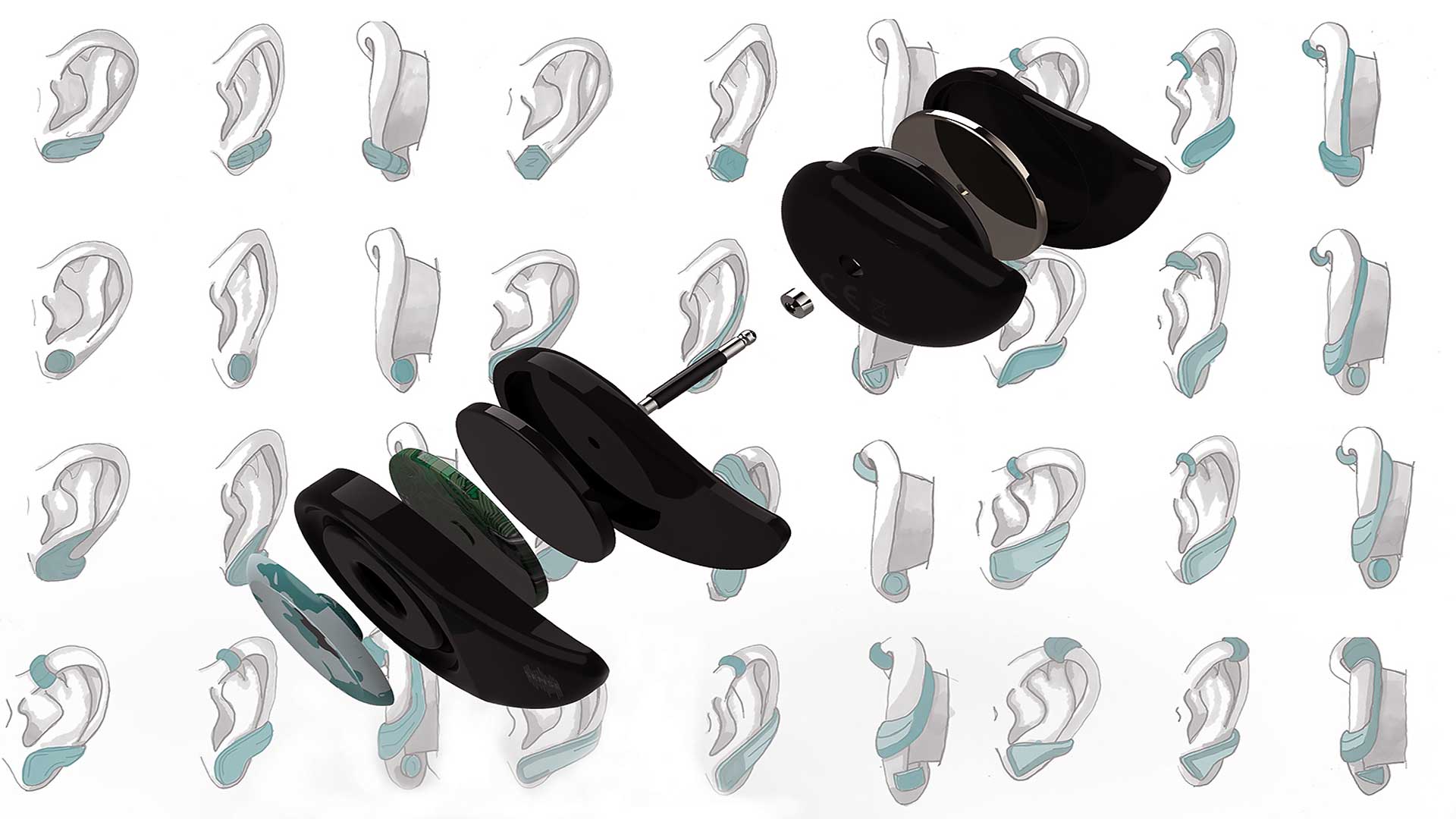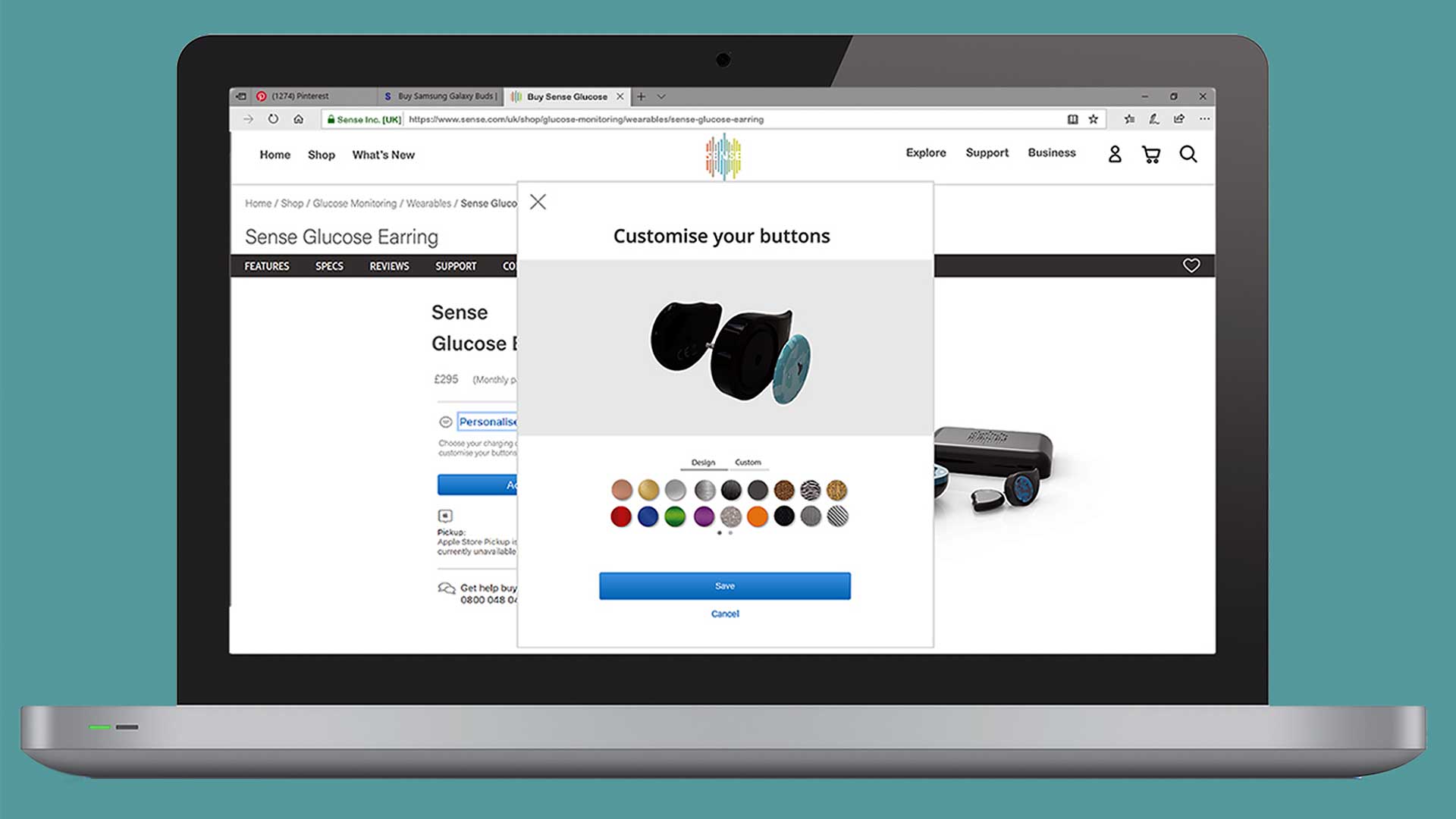
Tyra Kozlow
Product Design Graduate
Tyra has defeated thousands of entries worldwide to be one of the finalists of the '2020 Global Grad Show' with her design called 'Sense'. The discreet glucose earring monitors blood sugar levels and delivers feedback in real-time. The item of wearable technology has been created in the hope of lessening the stigma for teenagers diagnosed with type 1 diabetes so that monitoring their condition becomes much more a part of everyday life.
A PRODUCT design graduate from the University of Huddersfield has defeated thousands of entries from around the world to become one of the finalists of the 2020 Global Grad Show with her design for a discreet earring that monitors blood sugar levels and delivers feedback in real-time.
The Sense Glucose Earring designed by 22-year-old Tyra Kozlow is a non-invasive blood glucose monitor that could revolutionise how patients manage type 1 diabetes.
The diabetes-monitoring earring requires a single lobe piercing which incorporates safe high-frequency radio-waves that penetrate through the lobe and provides data on the characteristics of the blood. Unlike some of the other glucose monitors on the market, Tyra’s design does not require constant blood samples and it uses rechargeable batteries, thus reducing the amount of medical and plastic waste produced.
Once the blood has been monitored, Sense connects with an app to alert the user about their current levels of blood sugar and sends them notifications. The app can share data, analyse trends and generally helps the user to manage their condition.
Tyra graduated from the University’s School of Art, Design and Architecture with a degree in Product Design in July 2020 and now works as a Product Designer for Halifax-based specialist furniture design company Project:ff&e Ltd.
Teenagers with diabetes
The inspiration to design a piece of wearable technology for diabetics to be able to control their condition discreetly came after Tyra chaired a focus group with a group of parents whose children had the condition.
The group told Tyra of the stigma their children experienced and how because they felt ashamed, they would often avoid diabetes management with friends present and had difficulty telling their peers about their diagnosis.
Ideal diabetes management is based on finding the perfect balance of medication to keep a patient’s blood sugar in the perfect range: if their blood sugar is too high, there are significant risks of vascular complications, such as vision problems and kidney disease; if their blood sugar is too low, it can lead to morbid outcomes, including fainting, seizures, or even death.
“Even though type 1 diabetes is not the fault of the person affected by it and is not related to any behaviour patterns or choices,” explained Tyra, “young people diagnosed with the condition do experience a distressing level of stigma and can be twice as likely to have poor glycaemic control which can lead to further health problems.”
Tyra is confident that the Sense Glucose Earring will have a positive impact on a younger generation of type 1 diabetics.
“I hope Sense will help teenagers feel more in control of their diabetes and that they will feel more encouraged to manage their condition around their friends because it’s a piece of Smart technology they will be using,” she said.
“By making the monitoring process as easy as say, measuring your heart rate on a Smart watch, I hope this will lessen the stigma, so it becomes much more a part of everyday life,” she added.
In the video, Tyra talks about the positive impact, she hopes the Sense Glucose Earring will have, on a younger generation of type 1 diabetics and explains why it is so important for designers, like herself, to keep looking for new ways to help people feel in control of their health.
- View Tyra's design featured in the Global Grad Show exhibition and visit the University's dedicated News & Research YouTube channel to view more videos
The Global Grad Show
The Global Grad Show is an exhibition of graduate work from the world’s leading design and technology schools. The event, now in its sixth year, has grown to become one of the world’s largest student exhibitions and aims to put graduates in touch with those who can assist with and fund their research.
Each project submitted for the 2020 show was categorised into one of five social and environmental challenges: living with illness and disability, coping in a complex world, saving and protecting vulnerable lives, cleaning a waste-filled planet and sustaining the urban experience.
“Often unbeknown to the public, researchers at universities are developing a myriad of solutions for complex issues of today and tomorrow,” said the show’s director Tadeu Baldani Caravieri.
“From medical engineering to architecture and data science, young graduates are at the forefront of complex problem-solving, working on technologies for the greater good,” he added.
This year 270 universities from around the world submitted a total of 1,600 projects. 2020 also marks a record of 24 shortlisted entries from UK and Irish universities.
Two of the projects shortlisted in this year’s exhibition will secure seed funding to help bring the product to market which could be as much as £2million over a ten-year fund. The 100-strong line-up is now live and can be viewed online as part of the virtual event.
More news from the Department of Architecture and 3D design
More news from the Department of Architecture and 3D design - 0 articles matching your search
More news from the Department of Architecture and 3D design - 1 article matching your search
More news from the Department of Architecture and 3D design - {{numberOfPosts}} articles matching your search

